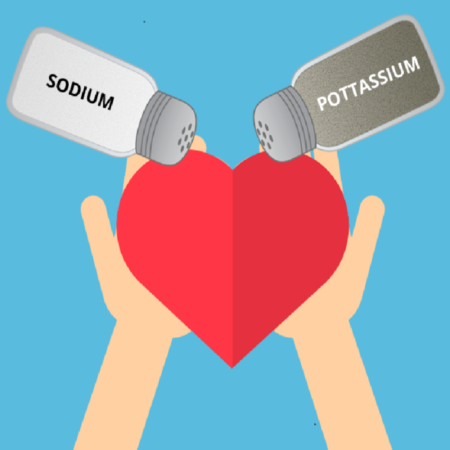
Fasting is an age-old process that helps rejuvenate your body, mind, and soul. Water fasting is a type of fasting in which you only drink water. It can help reduce oxidative stress and blood pressure and aid weight loss (1).
Water fasting typically lasts for 24 to 72 hours. If you want to extend the duration, you need to take medical consent. Read on to know the benefits of water fasting, who should avoid it, how to do it, and the dangers if you push it too far.
Is Water Fasting Good For You?
Fasting is a great way to boost metabolism and rejuvenate the body. But complete water fast for more than 72 hours is not scientific or healthy.
A short-term fast (water fast) is linked to autophagy (a process by which the body cleans out damaged cells and replaces with newly formed ones) (2). However, prolonged fasting may pose many health risks and prove to be dangerous.
To boost metabolism, you can try out one day of water fasting under proper medical supervision. But if you intend to lose weight, do not try this unhealthy practice for long. Water fasting is only a short-term approach that can be followed once in 15 days for a maximum of 1-3 days.
Who Should Water Fast
You can do water fasting if:
- your doctor asked you to.
- you want to boost your immunity.
- you are overweight.
- you are on a supervised fasting program.
Who Should NOT Water Fast
You should not water fast (or fast according to your doctor’s instructions) if:
- your doctor does NOT recommend fasting for you.
- you have hypoglycemia.
- you have diabetes.
- you are on any medication.
- you had recent surgery.
- you are pregnant.
- you have just given birth.
Water fasting for a short period is linked to many health benefits. They are discussed in the next section.
Benefits Of Water Fasting
1. Promotes Autophagy
Autophagy is the body’s process of eliminating the wastes produced via cell degradation or components that are either dysfunctional or not required by the body. It is basically a clean-up process for your body (3).
Most neurodegenerative diseases are caused by abnormal protein aggregation, which can be reduced by autophagy (4). Water fasting once or twice a week helps to clean up abnormal cells.
There are no short-term interventions to prove that water fasting for a short period can help clean up cell debris. More human studies are required to prove this aspect.
2. Lowers Blood Pressure
Drinking more water and cutting down salt consumption is a way to lower blood pressure. If medically supervised, water fasting for long periods can help manage blood pressure.
A research done by American scientists found that out of 68 people with borderline hypertension, 82% had reduced blood pressure after they underwent clinical water fasting under medical supervision (5).
However, more human studies are required to establish the effects of short-term water fasting on blood pressure.
3. Lowers Risk Of Cardiovascular Diseases
Periodic or intermittent fasting can help lower cholesterol and triglyceride levels (6). However, there are very limited studies to support this.
A pilot study established that a day of water fasting could lower triglyceride levels and improve total cholesterol and HDL levels (7).
The study also states that the long-term effects of these short-term changes are unknown. More studies are required to understand how water fasting can be used as a preventive treatment to reduce the risk of metabolic disease.
4. Improves Insulin Sensitivity
Insulin and leptin are hormones that help regulate blood glucose levels and hunger, respectively. Fasting generally improves insulin sensitivity and blood glucose regulation.
A study by the University of Alabama revealed that intermittent fasting (8-hour period) improved insulin sensitivity and decreased appetite (8).
However, there are no studies establishing the possible effects of water fasting on blood glucose levels. As it is completely water fasting, people with diabetes should consult with a doctor before trying it.
5. Lowers Oxidative Stress
Another benefit of water fasting is to lower oxidative stress. The accumulation of reactive oxygen species (ROS) due to an unhealthy lifestyle and bad food habits increases oxidative stress and inflammation in the body. Eleven days of water fasting in 10 volunteers reduced oxidative stress (1).
Though water fasting has certain benefits, it also poses a few health risks.
Dangers Of Water Fasting
- Unhealthy Weight Loss: Water fasting for 24-48 hours can help people lose nearly 2 kg. This weight loss cannot be considered fat loss but the loss of water weight, muscle, and carbs. It is an unhealthy weight loss and not a sustainable approach as no food is allowed, except for water.
- Nutrient Deficiencies: Water fasting for even 3 days causes nutrient deficiencies as you will be drinking only water.
- Dehydration: Though you may drink a lot of water during water fasting, it is not sufficient to rehydrate the cells. We get 20% of the water from the foods that we eat, which is enough to retain water in the cells and tissues. Water fasting increases urinary output, which leaves our cells dehydrated.
- Orthostatic Hypotension: It is a common issue among people who fast for a long period. It involves a sudden decrease in systolic blood pressure of 20 mmHg and diastolic blood pressure of 10 mmHg when you suddenly stand up (9).
- Weakness: During water fasting, your body lacks nutrients, and you might experience dizziness, weakness, and brain fogging. As your brain does not get enough fuel, you might lose focus and concentration.
- May Lead To Binge-Eating: As the calorie intake is totally restricted, you might end up binge-eating once you break your fast.
- Exacerbate Certain Medical Conditions: Both short-term and long-term fasting can worsen certain medical conditions. It can cause a sudden drop in insulin levels, which impairs blood glucose regulation in people with diabetes. It also increases uric acid production (medically known as gout) (10). It may also cause heartburn as it increases stomach acid production.
If you do not do water fasting in the right way, it can cause harm to your body. Scroll down to find out how to fast safely.
How To Fast
There are two sub-stages: Exclusive Water Fast (24-72 hours) and Post-Fast Eating Phase (1-3 days).
Exclusive Water Fast ( 24-72 hours)
In this phase, you are allowed to drink only water. No juices, herbal teas, non-alcoholic beverages are allowed. Drink enough water throughout the day. Here are a few pointers:
- If you are new to fasting, try going without food for 4 hours. Have a heavy breakfast at 8 a.m. in the morning and then break your “fast” at 12 in the noon.
- Increase the fasting duration gradually to 8 hours.
- Try the Ramadan fasting. Load up on proteins, dietary fiber, and healthy fats before sunrise. Eat again after sunset.
- If you can, increase the fasting duration to 24 hours. Do this once or twice a week.
Post-Fast Eating Phase ( 1-3 days)
This phase is crucial as you may tend to binge-eat once you break your fast. Hence, you need to be very careful post your fasting stage. Do not hog food. Break your fast with some dry fruits, followed by healthy juices or smoothies. Here are a few pointers:
- Include whole grains and lean protein in your diet to replenish muscle loss and improve strength.
- Consume dry fruits and nuts and seeds mixture to restore omega-3 fatty acids.
- Do not binge on fried and processed foods.
Conclusion
Water fasting has several benefits if followed under proper medical supervision. However, most studies have been done on animals, and there is a need for more human studies to establish its benefits or effectiveness.
Consult a doctor and registered dietitian if you have any medical condition. Long-term water fasting is not medically suggested, but if you want to fast, try out intermittent fasting or alternate-day fasting.
Expert’s Answers for Readers Questions
Q. How long can you water fast safely?
A. You can water fast for a maximum of 24-72 hours under proper medical supervision. Prolonged fasting can be fatal as foods are completely restricted.
Q. Does water fasting reset your metabolism?
A. As water fasting is calorie-free, it supports metabolism and promotes weight loss. If you fast for 2-3 days, it will kick-start your metabolic process. However, long-term fasting slows down metabolism.




























